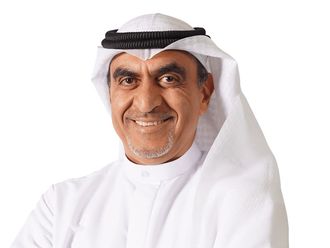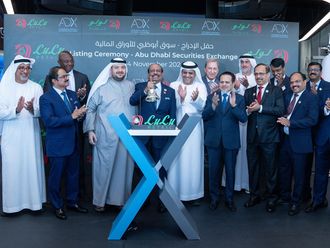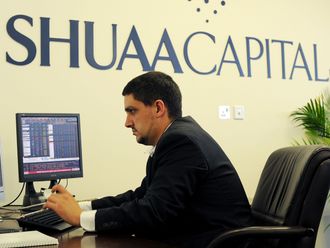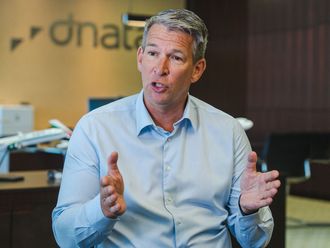Dubai: Is it time for rebranding of Islamic banking?
There are two schools of thoughts on the branding or labelling of Islamic banks: 1. We need to call a ‘spade a spade' and there is interest in ‘interest-free' Islamic banking; and 2. We need to focus on branding its ethical and risk sharing universal appeal, hence, label it as ethical, alternative, participation or Halal banking.
There may be 1.6 billion Muslims, yet Islamic finance may have reached only about 1-2 per cent in its 40 years.
Hence, it may not be too late for a discussion.
The world has become smaller, closer and inter-connected because of technology, telecommunication and transportation with divergent views aired daily; yet there seems to be an implicit craving for ‘curious' convergence as ethics and justice are borderless universal qualities.
In the area of finance, we do not have Christian banking, Hindu banking or Buddhist banking, yet we have Islamic banking. So the questions is in a world looking for labels for categorisation, would the present banking system be considered atheistic banking, though currencies, like the dollar, state ‘In God We Trust'?
Important proposition
To the Islamic banking purists camp, the form is an important proposition differentiating it from the rest of the banking, and no compromise will be tolerated as it's a slippery slope to loss identity, our unique selling proposition (USP).
Islamic banking conjures a mental picture of equity/justice and spirituality (Maqasid) that is removed from conventional interest-based banking, with images of moral hazards, collateral, debt dependence, credit crisis, farmer suicides, foreclosures, systemic risk, and so on.
Thus, the Islamic bank label should not be tinkered with, including by those with global aspirations in non-Muslim countries, as Islamic bank of Britain and European Islamic Investment Bank are two good examples of Islamic bank establishment in a G20 country, UK, notwithstanding their sub-par performance since the launch.
Successful
Yet, First Islamic Investment Bank changed its name to ArCapita. The largest Islamic fund with majority non-Muslim investors is US-based Amana funds and most successful Islamic banking subsidiary is HSBC Amanah.
But, what about Iran, which is said to have the largest Islamic banking operations, yet. Iranian bankers and scholars are rarely interviewed by Western media. Does this mean Iranian Islamic banking is not recognised by the purists camp?
Finally, we do not want splintering in Islamic banking. We have four schools of thought (Madhabs), and, we have not attained standardisation in Islamic finance. Hence, its theoretically possible for someone to suggest Maliki banking, Shafi project financing, Hanbali asset management, and Hanafi indexes! Same slippery slope?
Islamic banking, due to its linkage to the real economy and financing/investing in Sharia-compliant or sin-free activities, has been called ethical.
To those who suggest calling it Ethical Banking, existing banking is by implication unethical or less ethical. In addition, ‘ethical' is a subjective term and may cause more controversy than open doors for acceptance of Islamic banking.
To those who may come from, say, the private equity or hedge fund space, and want to call it ‘alternative' banking, it may suggest Islamic banking is opaque. These are the attributes Islamic banking is trying to shed.
The essence of Islamic banking is neither risk taking nor shifting, but risk sharing. The bank is not only an intermediary for capital, but also a participant in the undertaking.
Turkey, a strongly secular country with a long history of anti-Sharia sentiments, has experience with Islamic banking, and it may just have the label issue addressed. By calling it ‘Participation Banking', it captures the core principal of Islamic banking, and, concurrently, conjures up sentiments of community banking.
Substance and form
The Halal food industry has reached more Muslims and probably better brand awareness than Islamic finance, and it comes across as a more neutral term (than Sharia or Islamic) in non-Muslim countries. Halal is aligned with ‘kosher,' as Muslims living in places where Halal food is not available often opt for kosher food. In certain parts of the world, Islamic banking is referred to as Halal Banking, hence, the term seems to address both substance and form.
As a starting branding exercise, may be, we need to take a vote on the suggestion of Halal Participation Banking (HPB), as this would encounter less resistance by the purest and without immediately raising anti-Sharia sentiments in the non-Muslim areas. It would also help commence convergence with $640-billion (Dh2.35 billion) Halal Industry. Let Gulf News count your votes!
The writer is Global Head of Islamic Finance at Thomson Reuters.












